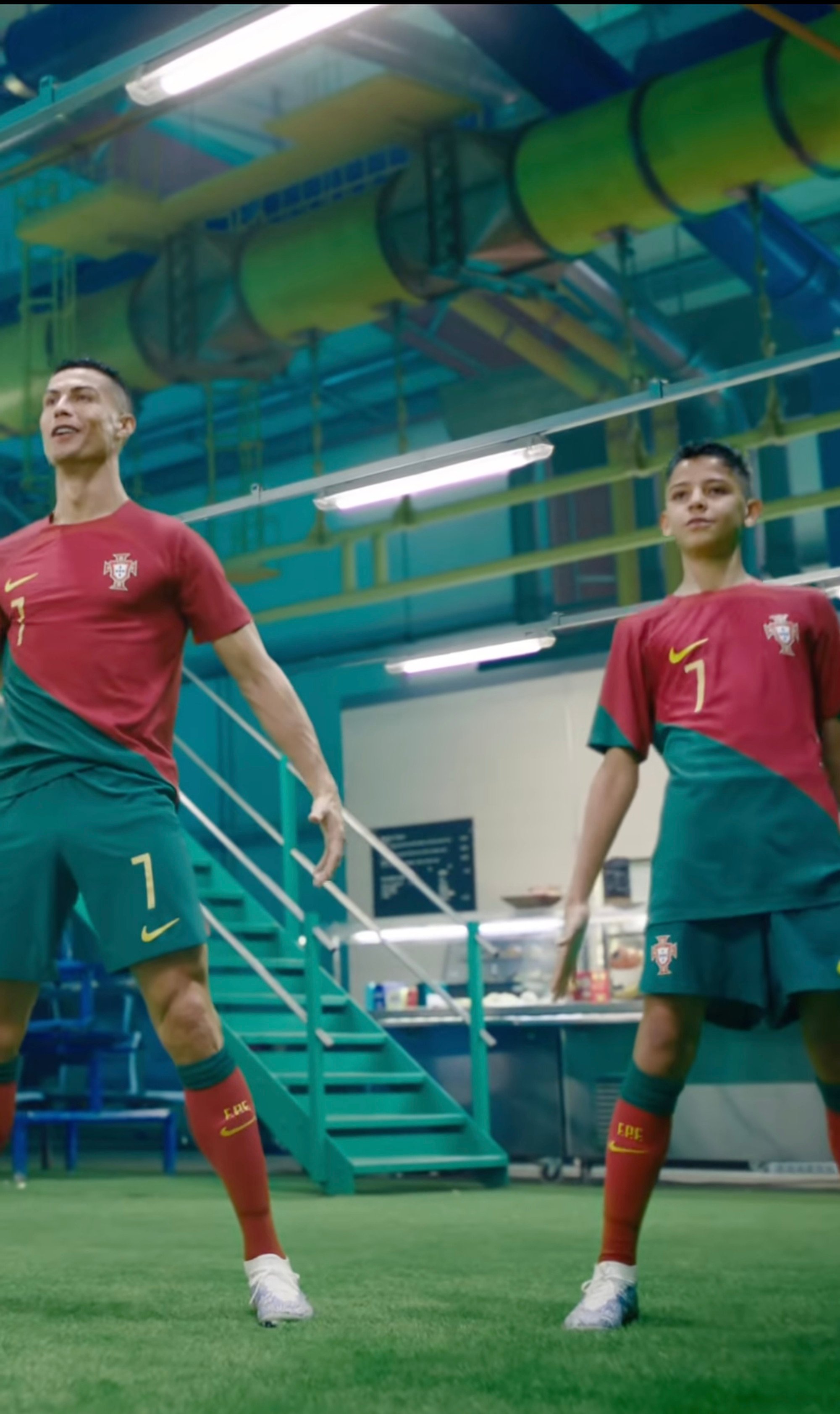
‘No mobile, work hard, eat well’: Hong Kong parents take leaf from book of World Cup tiger dad and soccer superstar Ronaldo
- Portuguese soccer superstar fears his namesake 11-year-old son might become addicted to technology
- Is Ronaldo turning into a tiger dad? Six-pack father-and-son snaps appear online
Soccer superstar Cristiano Ronaldo often makes headlines. This week it was his record-breaking multi-million dollar deal to join a team in Saudi Arabia.
But as arguably the world’s greatest-ever player enters the twilight of his career, it is his off-field activities that are gaining attention.
The latest such example is the Portuguese internationalist’s twin decision to ban his 11-year-old son from using a mobile phone and put Cristiano junior on an intense fitness regime.
The father and son duo can be seen flaunting their six packs on social media, while Ronaldo junior’s workout videos are popular on YouTube.
“My son has potential. We’ll see if he will become a great footballer. Sometimes he drinks coke and eats crisps and it irritates me. I just want him to be the best in whatever he chooses to do. I always tell him, hard work is the most important,” Ronaldo senior recently tweeted.

But does this make him a “tiger dad”, to tweak the “tiger mum” phrase coined by author Amy Chua in her 2011 book Battle Hymn of the Tiger Mother.
Tanith Carey, mother and author of 12 books on psychology, parenting and social history, including Taming the Tiger Parent, said:
“If pushed beyond their capabilities, many children don’t respond to this ‘success at any cost’ approach - and it could do more harm than good if their kids grow up never feeling good enough.”
Ryan Hong, an assistant professor of psychology at the National University of Singapore, studied the city state’s hot-house children – kids who are pushed to succeed faster than what they are cognitively and intellectually ready for.

Hong found children with intrusive parents were not just overly self-critical but prone to anxiety and depression later in life.
“When parents become intrusive in their children’s lives, it may signal to the children that what they do is never good enough,” Hong told the Post.
Carey said what differentiates a tiger dad from tiger mums is they tend to be more openly competitive about their children’s achievements while mothers’ efforts to get their kids ahead are generally carried on more covertly.
“I found that mums want it to look as if their kids were naturally brilliant, even if there was a lot of extra work going on in the background,” she said.
By contrast, she said, tiger dads tend to be happier to talk about their targets for their kids.

Nathan Solia, a Hong Kong fitness trainer and father of two, a boy, Benji, 12, and a girl, Jade, 10, said pressuring or guilt tripping kids into exercise is counterproductive.
“If my kids are grumpy or have a sore neck then I tell them that’s because they haven’t done enough exercise,” he said. “Show them the benefits of exercising and the consequences of not.”
Solia said children should do some form of exercise every day. And for good reason. He’s seen the damaging impact of a sedentary lifestyle.
“Find out what your children love and encourage them to pursue their passion instead of forcing them into sports. And try to ‘gamify’ exercise to make it more fun,” he said.

Cordula Kotanko monitors her daughter Isabel’s mobile device exposure.
Aged 10, the child began experiencing blurred vision and was diagnosed with photo-bleaching, sometimes called fading, that can cause sensitivity to light.
“She was off electronic devices for a few weeks, which was difficult because it was during Covid,” said Kotanko, a former Hongkonger now living in Singapore.
“I had never heard of eye bleaching but after the diagnosis I did a lot of research.”
Most alarming was discovering the potential harm from blue light, the light emitted from electronic devices that inhibits the body’s ability to produce melatonin, and disturbing sleep patterns.

